Falling in love with someone you’ve never met? It sounds romantic in a Romeo-and-Juliet-meets-Instagram-DMs kind of way… until the excuses start rolling in. Their camera is always broken. They’re too busy to meet. They vanish for weeks at a time. We’ve all had that friend who swears they’re dating someone “real” online, but the receipts just don’t add up.
That’s where MTV’s Catfish: The TV Show swoops in with its laptops, lie-detecting energy, and a whole lot of emotional drama. Since 2012, Nev Schulman and his team of co-hosts have been exposing fake profiles, shocking secrets, and the messy underbelly of online dating.
But how much of the show is real? And how much is pure reality-TV editing magic? Let’s dive into the real facts about Catfish.
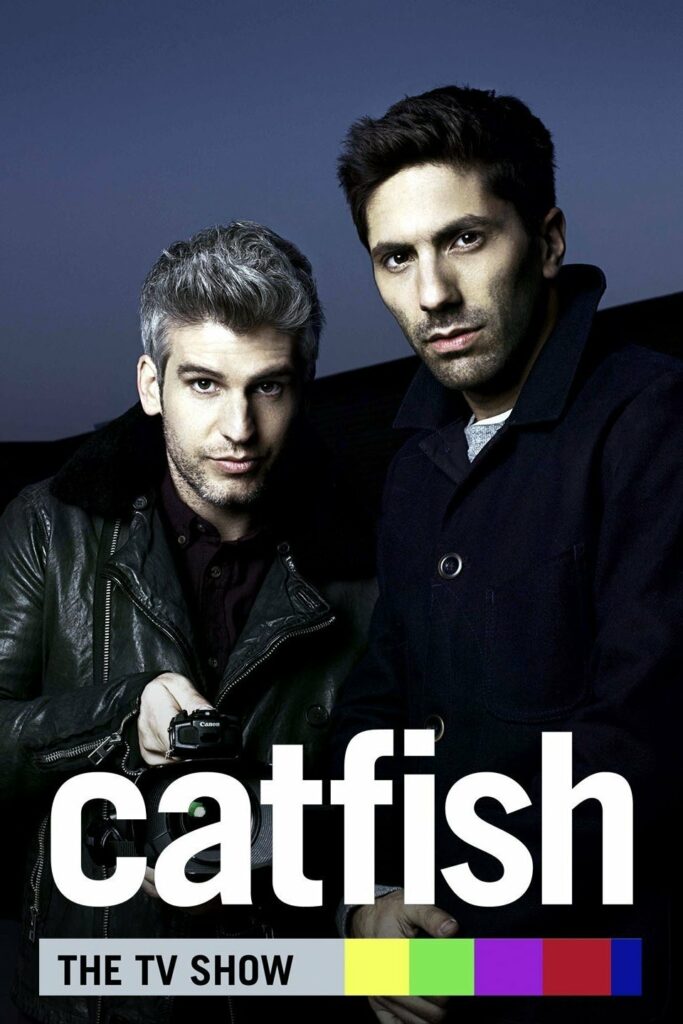
From documentary to phenomenon
Before it was a TV empire, Catfish was a 2010 documentary starring Nev Schulman himself. Nev had fallen for a Facebook girl named Megan—an artsy, music-loving dream. Except Megan didn’t exist. She was invented by Angela, a married 40-year-old who spun a wild web of lies, including a fake younger sister who was supposedly an art prodigy.
That story gave us the term “catfishing,” inspired by a bizarre metaphor about cod shipped across oceans staying fresh when a catfish nipped at their tails. Weird, but it stuck. By 2012, MTV had turned the doc into a TV series, and Nev was suddenly the go-to guy for online love gone wrong.
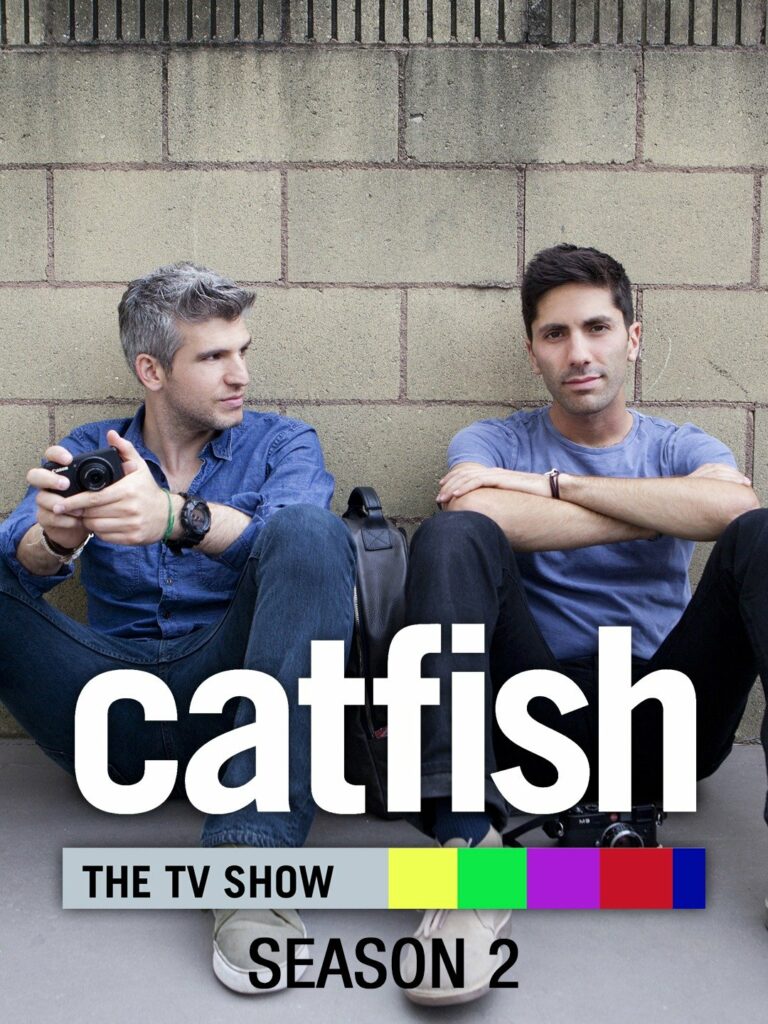
Nev & Max: the original duo
For years, Nev and Max Joseph were the ultimate detective duo—kind of like Sherlock and Watson, if Sherlock wore hoodies and Watson was a filmmaker with perfect silver hair. The two had been friends long before the show. In fact, Nev literally called Max for help when pitching the idea.
MTV loved the chemistry, and the rest is history. Sadly, Max left in 2018 after seven seasons, calling it “one of the most remarkable experiences” of his life. Nev and Max weren’t just co-hosts—they were basically brothers.
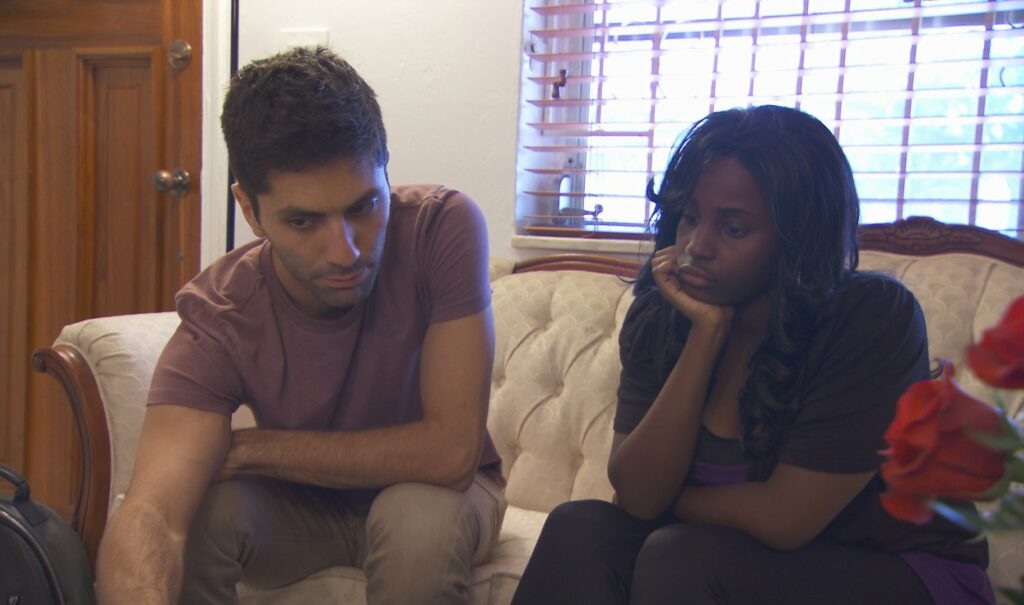
Do the catfish actually volunteer?
Here’s a fun twist: sometimes it’s not the heartbroken hopeful who contacts the show—it’s the actual catfish.
That’s right. The people behind the fake profiles often reach out themselves, ready to confess, apologise, or finally drop the act. One catfish even admitted, “You know how they say [the catfishee] reached out? That isn’t accurate. I contacted them.”
So yes, while the show frames it from the victim’s perspective, sometimes the liars themselves are desperate for closure.
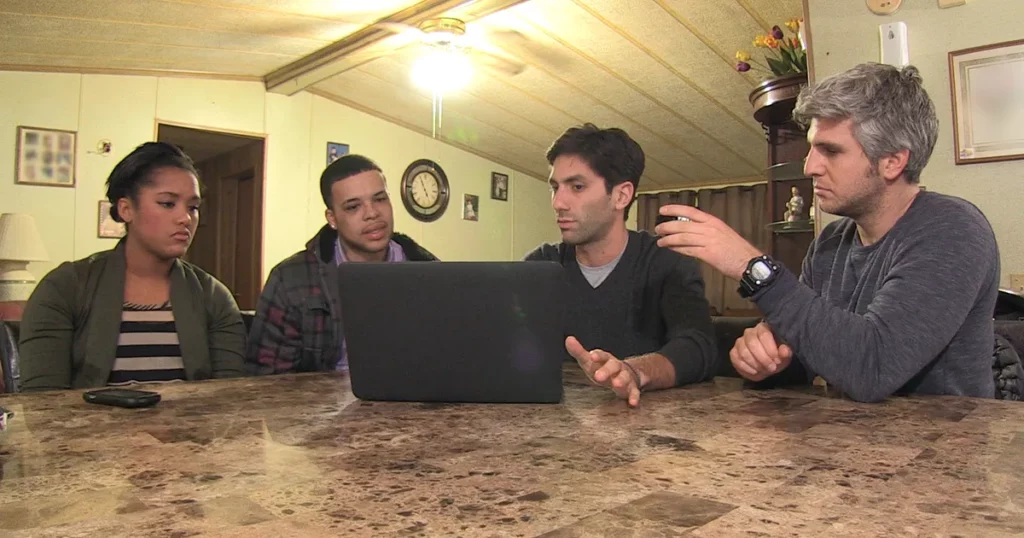
Is it scripted?
This might surprise you: nope. Catfish isn’t scripted. Sure, there’s heavy editing (no one wants to watch six hours of Googling phone numbers), but the conversations are real.
Co-host Kamie Crawford once laughed about people tweeting, “They’re so good at reading scripts!” Her response? “What? You can’t script this.”
The producers know some details, but the hosts really are investigating alongside the viewers. That shock you see on Nev’s face? It’s genuine.
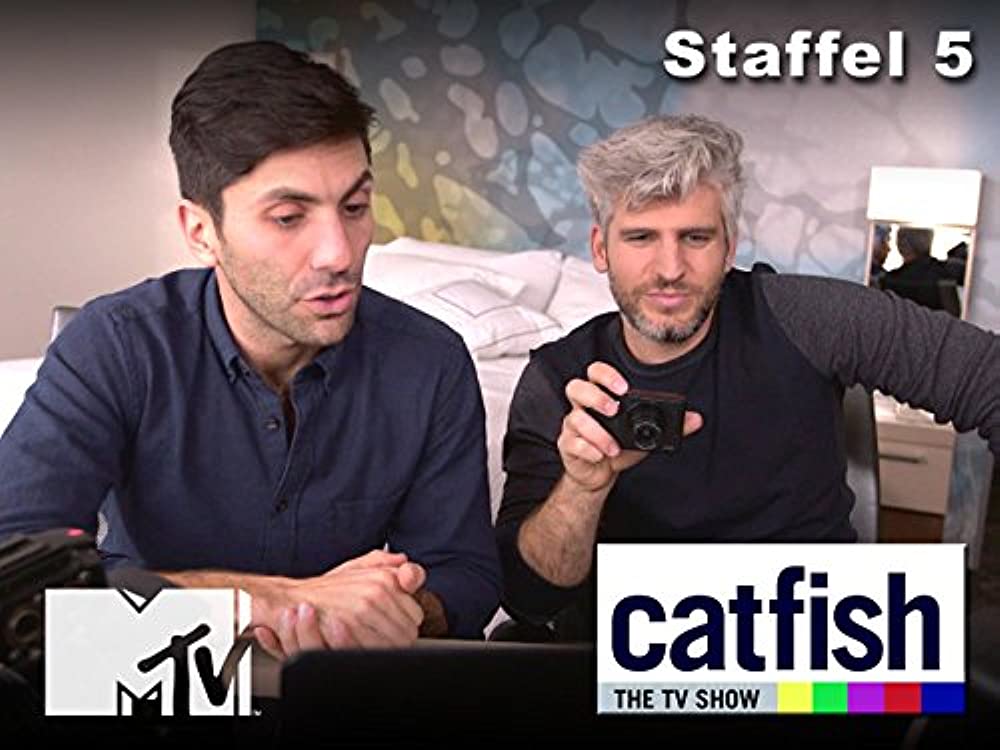
Investigations take way longer than you think
On TV, it looks like Nev and Kamie crack the case in an afternoon. In reality, investigations drag on for hours, sometimes days. First phone calls with participants last up to two and a half hours. Researching profiles? All-nighters.
Editing trims all that down to a few suspenseful minutes. The “five texts in five seconds” trope? Totally misleading. The replies usually take ages—they just get cut for pacing.
Safety first (even if it doesn’t look like it)
Ever noticed how the catfish always has a microphone before the big reveal? That’s because the crew preps them in advance. There’s no surprise ambush—it’s all arranged for safety and sound quality.
Everyone signs waivers and goes through background checks, psychiatric screenings, and fact-verification before appearing. The drama is real, but the logistics? Totally managed.
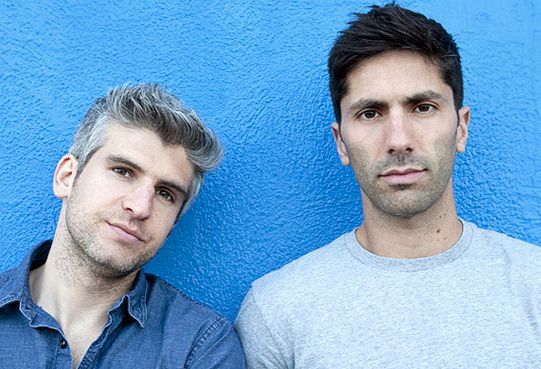
Fame seekers, beware
When Catfish blew up, some people tried to fake their way onto the show for attention. MTV producers got wise quickly. Now, hopefuls and their supposed partners go through intense vetting.
According to producer Tom Forman, “Getting to the bottom of it takes a lot of people scouring over the Internet late into the night.” Basically, no one’s slipping through the cracks just for clout.
The heartbreak is real
Not every story ends with a tidy bow. Sometimes, the catfish bails. Sometimes, the relationship collapses on the spot. One infamous episode involved a woman named Leah refusing to meet at all, sending her sister in her place instead. Brutal.
It’s messy, unpredictable, and painful—but that’s what makes it so addictive.

Therapy is part of the deal
Getting catfished is traumatic. That’s why MTV makes sure both the catfish and the victim get access to therapy after filming. The show doesn’t want to leave people broken—it’s about understanding why people lie online and what both sides can learn.
Nev has said many catfishers struggle with loneliness, insecurity, or mental health challenges. In his words: “The show is therapy—it lets individuals talk about their feelings.”
Why Catfish still hits
At its core, Catfish isn’t just about exposing liars. It’s about human connection—the need to be seen, loved, and validated, even if it’s through a fake profile.
It’s messy, awkward, sometimes hilarious, and often heartbreaking. And maybe that’s why we can’t stop watching. Every reveal is a reminder that the internet can be magical, but also messy.
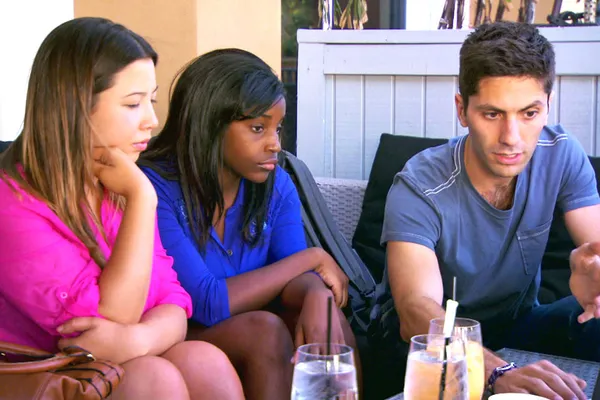
Final thoughts
Eleven years, countless episodes, and endless jaw-drop reveals later, Catfish: The TV Show remains a reality-TV staple. It’s not perfect. It’s edited. It’s dramatic. But the emotions? They’re 100% real.
So next time you’re deep in someone’s DMs and they say their camera’s “broken,” remember: you might just be starring in the next episode.


